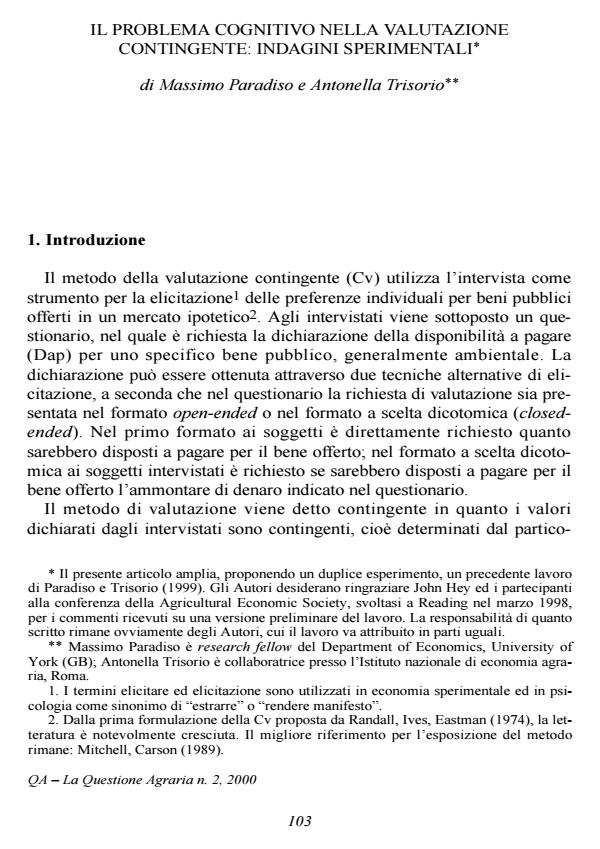Il problema cognitivo nella valutazione contingente: indagini sperimentali
Journal title QA Rivista dell’Associazione Rossi-Doria
Author/s Massimo Paradiso, Antonella Trisorio
Publishing Year 1 Issue 2000/2
Language Italian Pages 14 P. File size 35 KB
DOI
DOI is like a bar code for intellectual property: to have more infomation
click here
Below, you can see the article first page
If you want to buy this article in PDF format, you can do it, following the instructions to buy download credits

FrancoAngeli is member of Publishers International Linking Association, Inc (PILA), a not-for-profit association which run the CrossRef service enabling links to and from online scholarly content.
The Cognitive Problem in Contingent Valuation: Experimental Investigations - The use of contingent valuation (Cv) methods is controversial among economists because it is based on hypothetical rather than real economic choices. This paper reports the results of two experiments designed to elicit real and hypothetical willingness to pay (Wtp) for a private good. The purpose is to investigate the effect of cognitive bias in individual preferences and, in particular, the effect different circumstances of (direct and indirect) knowledge of the good has on subjects’ valuation behaviour. The findings show that (a) the process of learning the characteristics of the good and direct knowledge of it reduce the observed disparity between hypothetical and real Wtp; and that (b) different circumstances of knowledge generate different perceptions of the characteristics of the good.
Massimo Paradiso, Antonella Trisorio, Il problema cognitivo nella valutazione contingente: indagini sperimentali in "QA Rivista dell’Associazione Rossi-Doria" 2/2000, pp , DOI: